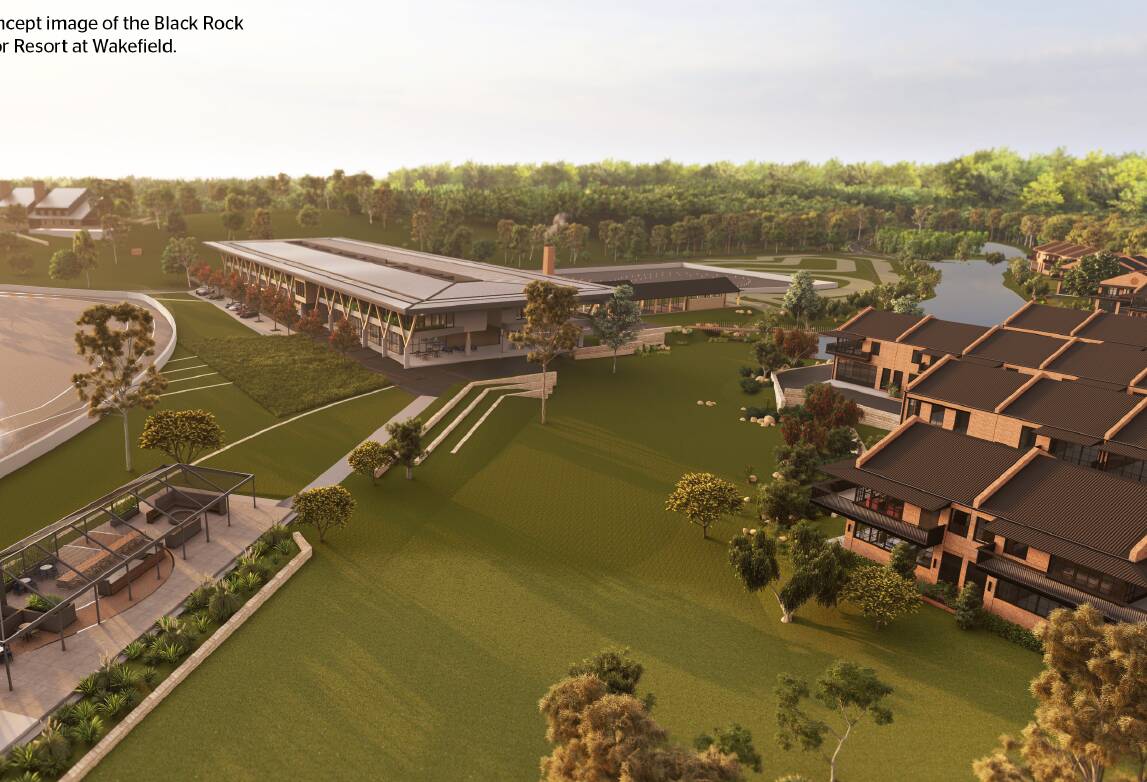
This week's sod turn on the Black Rock Motor Resort at Wakefield marked the latest step in a landmark development set to attract hundreds of jobs and tens of millions of dollars' worth of annual tourism to the region.
Not long ago, we'd have said this was a once-in-a-generation adaptive reuse project: the transformation of a vast former open-cut and underground coal mine into a luxury resort, racetrack and other facilities for motorsport enthusiasts.
But with the global shift away from thermal energy and fossil fuels, this is a story I hope we will tell many times over - particularly in a region like the Hunter with a history so deeply rooted in coal production.
Last month, the Herald reported that plans to re-purpose disused Hunter mine voids into a network of lakes similar to those found in Europe could help drive the region's post-mining economy. That's certainly the case, too, at Black Rock. Plans for the 262ha site are a neat microcosm of the much larger story unfolding across Lake Macquarie.
It's a story of economic transition, staying one step ahead of that change and embracing new, maybe even slightly risky or controversial concepts. It's not a reckless embrace, but one made after careful consideration and only once appropriate measures were in place to mitigate any risk and potential consequences.
The Black Rock concept has been in the pipeline for more than eight years. Similarly, Lake Macquarie City Council started on its transformative journey more than 10 years ago, after we recognised dramatic changes were on the horizon. It was a daunting prospect, as was the case for Black Rock, and not without broad challenges. But working to expand the city, attract new and younger residents and insulate our economy from the downturn in local mining and manufacturing industries was a step we needed to take.
What happened next vindicated that deliberate and seismic shift. In 2011, mining and manufacturing accounted for almost 40 per cent of Lake Mac's economic output. By 2022, that had dropped to 23 per cent.
Usual best-case scenarios see economies plateau during times of such rapid transition. More often, they decline, as communities and government at all levels struggle to play catch-up. Lake Mac has bucked that trend. More than 22,000 jobs sprang up in that period across the LGA, and economic output increased more than 7 per cent annually. Analysis by the University of Newcastle's Institute for Regional Futures found that council had been a key driver of those outcomes.
We're seeing that with billions of dollars' worth of development approved over the past five years, including the $235 million Cedar Mill event space, the $750 million Trinity Point resort, the $120 million Lake Macquarie Private Hospital expansion and now, the $95 million Black Rock Motor Resort.
As has been the case for Black Rock, it has been a long and sometimes challenging road to get to where we are today. Mining ceased on that site in 1971. Now, 53 years later, a new use is finally coming to fruition. The Hunter can't afford for other mine sites to lie dormant for decades, then take another eight years for proposals to be approved. We must learn from this pioneering case study to ensure we continue to harness suitable land for its best future use. We're continuing to work with the Institute of Regional Futures to provide evidence-based information that helps us on that path.
We're also working with a coalition of seven mining-impacted councils (Lake Macquarie, Singleton, Muswellbrook, Upper Hunter, Narrabri, Lithgow and Mid-Western) to provide a united vision and recommendations to government on the best reuse of former thermal energy and mining lands.
We are also spearheading advocacy to government to make this sort of transition simpler and to support economic diversification of communities like ours shifting away from traditional reliance on coal-related industry.
We want to see an equal or greater number of new jobs and opportunities on these sites as they supported when they were being mined.
This week's launch shows Black Rock is on the right track. We need to grasp these opportunities to ensure we're heading in that same direction.







